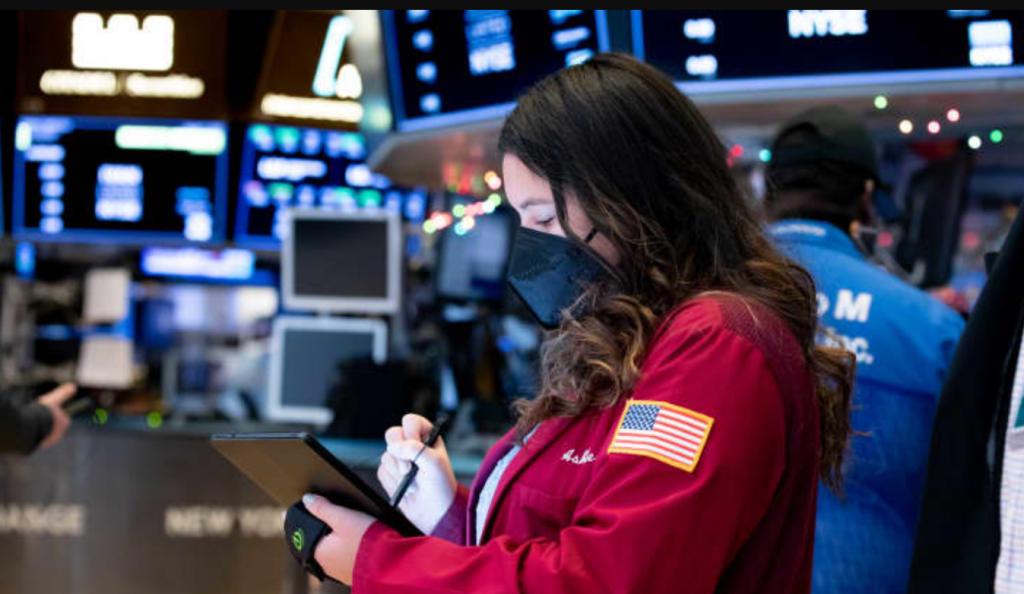
Markets will stay laser-focused on the prospect for more fiscal stimulus in the busy week ahead.
Politics and politicians are likely to continue dominating the headlines, as Democrats seek President Donald Trump’s removal after a mob of his followers took over the Capitol Building on Wednesday.
But it is stimulus that should get the most attention from investors, who are betting the new Democratic majority in Congress will move quickly and that it could consider a package of $1 trillion or more.
Stocks rose to record highs in the past week, boosted in large part by the idea of a bigger stimulus package.
With Democrats now in control of the Senate and House, the incoming administration of President-elect Joe Biden is expected to deliver an even bigger stimulus package than had been expected with a divided Congress. Biden said Friday the total will be in “the trillions of dollars.” The election Tuesday of two Georgia Democrats Jon Ossoff and Raphael Warnock, shifted control of the Senate to Democrats.
While disturbing, the temporary assault on the Capitol Building did not ruffle markets, and the removal of Trump is not expected to receive enough Republican support to succeed with just days remaining in his term. Biden is scheduled to be sworn in on Jan. 20.
“The market is willing to look through that chaos, but not through this anticipation of faster and bigger stimulus,” said Art Hogan, chief market strategist at National Securities.
Earnings, data ahead
In the normal business of markets, fourth-quarter earnings season begins with the rollout of big banks’ reports Friday, when JPMorgan, Citigroup and Wells Fargo on tap. There is also a long list of Fed speakers including Chairman Jerome Powell, who is scheduled for a webcast from Princeton University Thursday.
On the data front, CPI inflation data is released Wednesday and December’s retail sales are reported Friday.
The consumer price index will be important, and although it is expected to show muted inflation, markets have begun to price in rising expectations in the bond market. One bond market inflation measure, the 10-year breakeven, went as high as 2.1% Thursday, meaning investors expect that to be the average level of inflation over the next 10 years.
But strategists said little will matter but stimulus, which economists expect will ease the impact of the surging virus on the economy. The U.S. reported more than 4,000 deaths from Covid in one day for the first time Friday.
The stock market may also begin to pause as soon as the coming week, as the virus surge continues and investors worry vaccines are being too slowly deployed,
“You feel like this recovery rally is going to run out of legs,” Hogan said. He said that with the S&P 500 up about 16% since Nov. 4, investors may begin to think it is getting ahead of itself.
“That could be next week’s business to contemplate. You’re likely to take some sort of breather,” Hogan said.
Tom Lee, founder of Fundstrat, said there’s a level on the S&P 500 that could be a turning point for the market. The S&P 500 closed at 3,824 Friday, up 18% for the week.
“I think there’s a chance we could be hitting 3,900 and that’s a key level for markets,” said Lee. “That’s the level where people are looking for a local top. That’s a level where we could be repelled. It’s a number where if we blast through it, it would be good but if we don’t break through it, it could start the correction. It’s a binary risk.”
But even if there is a pullback, Lee expects the S&P 500 to reach 4,300 by year end. “I think what the stock market is saying is we’re going to get a really good economy this year,” he said.
Earnings season should be a positive for stocks.
“Uncertainty has plagued everyone, so the certainty that comes with earnings is good for stocks,” said Lee.





























